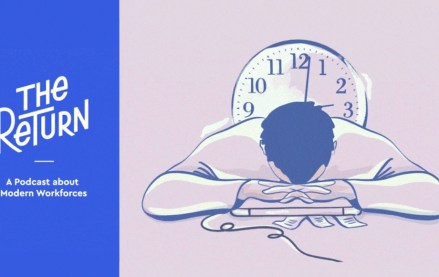After filtering for fraud, AppNexus transactions fell by 65 percent

Correction: The original version of this story said AppNexus filtered 65 percent of impressions as fraudulent. In fact, its transactions fell by 65 percent.
Ad fraud is top of mind in programmatic advertising, and the only debate is about the extent of the problem.
Rather large, if you go by a bracingly frank presentation by AppNexus chief data scientist Catherine Williams at ExchangeWire’s ATS London event on Monday. According to Williams, filters deployed earlier this year by AppNexus saw transactions on its platform drop by two thirds. One view: inventory quality has shot up; the other: yikes.
“AppNexus has the scale and mandate to solve a challenge that the entire industry confronts,” AppNexus CEO Brian O’Kelley said after the presentation. “We’re very proud to be out front on this. We took sophisticated and aggressive measures that delivered markedly higher CPMs for publishers and heightened view-through rate and post-click conversion rates for advertisers.”
Williams said, CPMs didn’t suffer because advertisers are willing to pay more for higher quality. After the filters were employed, view-through rates also rose 75 percent, while post-click conversion rates surged 130 percent as a direct result. That’s the good news.
But her presentation sparked unease from senior ad tech execs and buyers in the audience, and several took to Twitter to criticize AppNexus for being slow to the accountability party.
Did Appnexus just admit to ripping off buyers for the last 8 years? #ATSL15
— Luke Fenney (@lukefenney) September 14, 2015
AppNexus just cut 65% of supply deemed fraudulent. $2billion / year flows through pipe. $1.3 billion freed to go where it belongs. #ATSL15
— Index Exchange (@IndexExchange) September 14, 2015
sorry but I don’t buy it – @AppNexus moral decision speech. A co full of bright people who knew what was going on. Chose to ignore #ATSL15 — marco bertozzi (@m_bertozzi) September 14, 2015
AppNexus data chief is being commendably transparent about the fraud on their platform due directly to their business model #ATSL15 — Jordan Mitchell (@kickstand) September 14, 2015
#atsl15 Appnexus on centre stage talking about volume dropping 65% due to anti fraud steps…Why?@RubiconProject did this years ago!!
— Nina Harvey (@TweetNinaH) September 14, 2015
Good to see @AppNexus catching up with @OpenX @RubiconProject and @google on ad fraud. But who monetises the bot traffic now? #ATSL15
— Ben Price (@Ben_Price1) September 14, 2015
Good preso from @appnexus. Good to see that adtech companies are less of a black box and actually talk about their optimisations #atsl15 — Emmanuel Arendarczyk (@earendarczyk) September 14, 2015
Marco Bertozzi, global vice president of clients at Publicis-owned VivaKi, said it was “admirable” that AppNexus has tightened its controls on ad fraud, but it was rather late to do so.
“For some time we raised this in VivaKi as an issue, but they did not want to take responsibility for it, as regards people using their buy-side tech,” he said. “AppNexus is a company with a number of ad tech veterans and super bright people, I find it hard to believe they were not aware of many of the issues.”
Wayne Blodwell, head of programmatic at Dentus Aegis-owned iProspect, agreed that it has taken a long time for the company to address the issue.
“It’s great that a seller like AppNexus is investing time and technology into cleaning up their marketplace for buyers. However, could this have happened sooner? Definitely. Do other sellers need to follow suit? Absolutely,” he said.
That was the goal, according to O’Kelley.
“We understand that Catherine’s talk was disruptive,” he said. “We’ve created a new and very high standard that everyone else will have to meet.”
More in Marketing

With the rise of the chief AI officer, it’s time to examine ‘czar’ culture
Even if it’s a familiar pattern — hot new thing, new C-Suite exec to tackle said thing, a few years go by and that C-Suite position no longer exists as everyone is now doing said thing (or it was a fad that has since faded away) — does it make sense for businesses to continue to appoint new czars with every new trend?

Why Cava’s bid for brand awareness means prioritizing streaming ads
Fast-casual restaurant chain Cava has been in growth mode over the past year and is leaning into streaming ads in an effort to boost brand awareness.

A history of middle manager stress: The Return podcast, season 3, episode 1
In episode one, McKinsey partner Emily Field tells us more about why middle management is critically important to the workforce.





